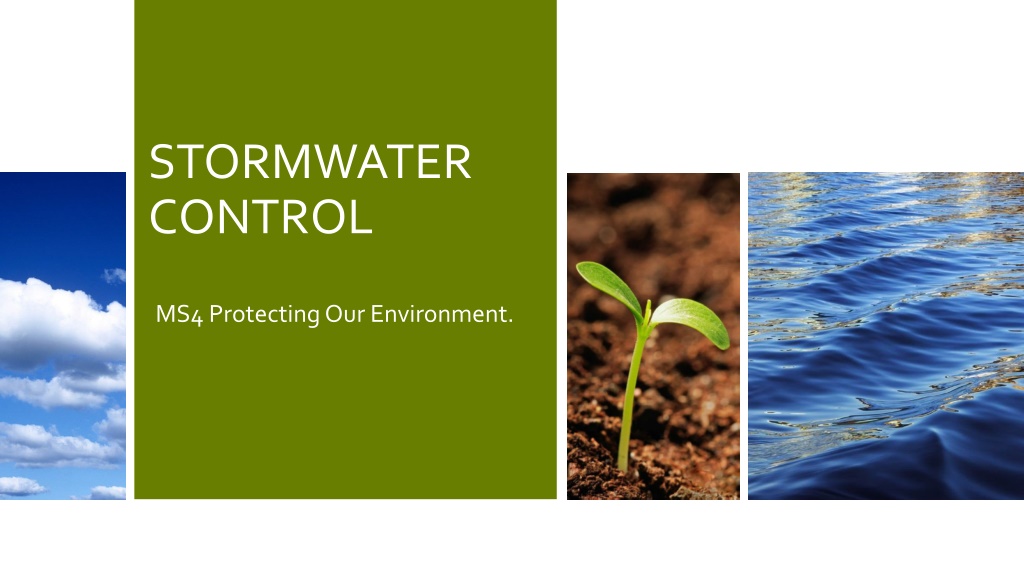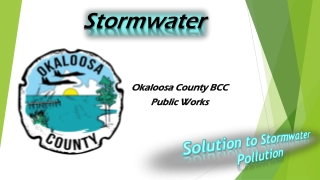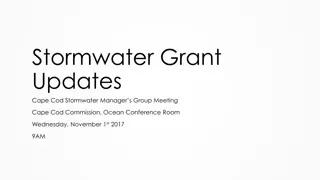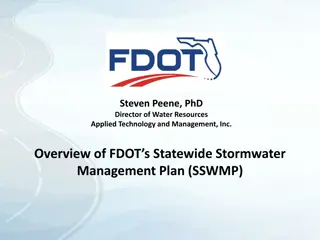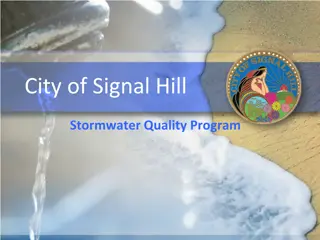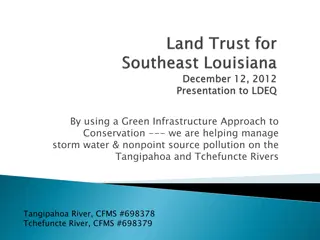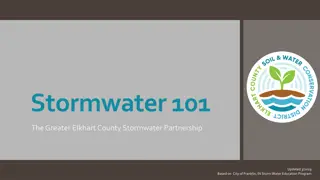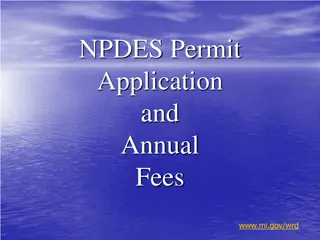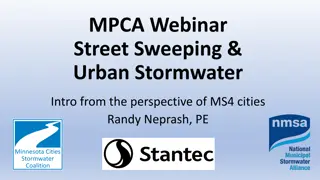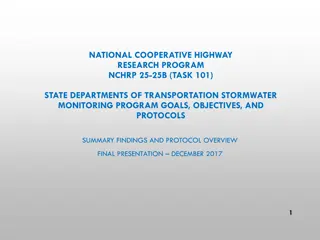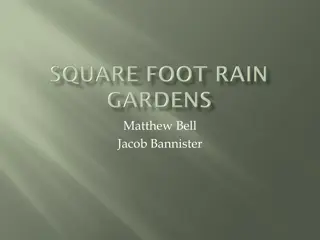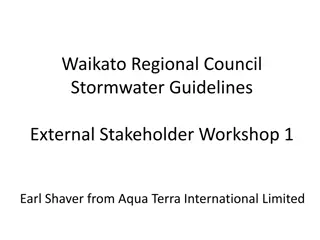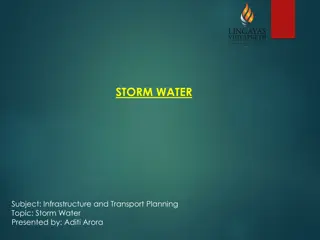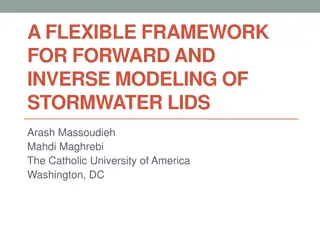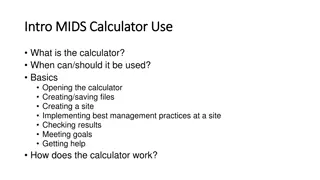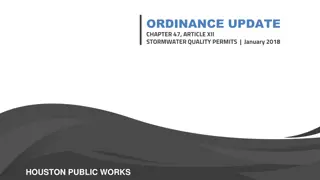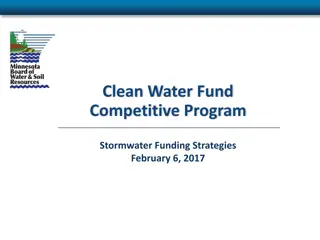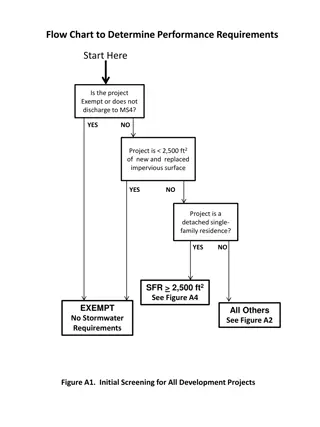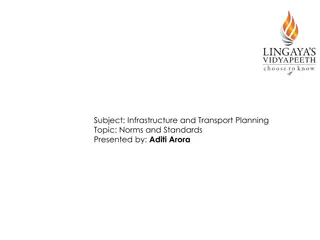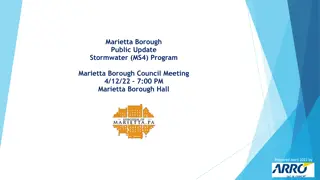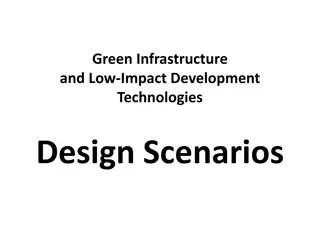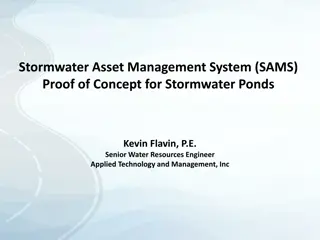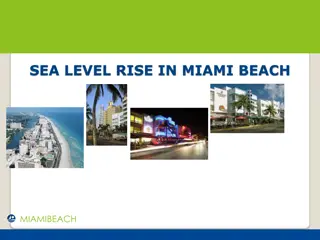Understanding Stormwater Management and Best Management Practices
Stormwater management is crucial for protecting our environment from pollutants in runoff water. Best Management Practices (BMPs) are a combination of structural, vegetative, and managerial techniques used to prevent water pollution and improve water quality. Learn about stormwater pollution, minimum control measures, and practical solutions to reduce runoff pollution. Explore examples of BMPs and discover what actions you can take at home to minimize stormwater pollution effectively.
- Stormwater management
- Best Management Practices
- Water pollution
- Runoff pollution
- Environmental protection
Download Presentation

Please find below an Image/Link to download the presentation.
The content on the website is provided AS IS for your information and personal use only. It may not be sold, licensed, or shared on other websites without obtaining consent from the author. Download presentation by click this link. If you encounter any issues during the download, it is possible that the publisher has removed the file from their server.
E N D
Presentation Transcript
STORMWATER CONTROL MS4 Protecting Our Environment.
STORMWATER POLLUTION Stormwater runoff is generated from rain and snowmelt events that flow over land or impervious surfaces, such as paved streets, parking lots, and building rooftops, and does not soak into the ground. The runoff picks up pollutants like trash, chemicals, oils, and dirt/sediment that can harm our rivers, streams, lakes, and coastal waters. Population growth and the development of urban/urbanized areas are major contributors to the amount of pollutants in the runoff as well as the volume and rate of runoff from impervious surfaces. Traditional stormwater management approaches that rely on peak flow storage have generally not targeted pollutant reduction and can exacerbate problems associated with changes in hydrology and hydraulics. 2 9/23/2024 Add a footer
MINIMUM CONTROL MEASURES TOWNSHIP GOALS Educate Educate Public Involvement Pollution Prevention Discharge Detection Public Construction Runoff / Post- Construction Management Pollution Prevention Construction Runoff Discharge 3 9/23/2024 Permit Requirements
STORMWATER MANAGEMENT Modern stormwater management, including proper planning, the use of green infrastructure, and public education, reduces runoff and runoff pollution to protect and improve water quality. 4 9/23/2024 Add a footer
What is the definition of Best Management Practice BMP? Are structural, vegetative or managerial practices used to treat, prevent or reduce water pollution? 5 9/23/2024 Best Management Practice
CONSTRUCTION / BMP Add a Slide Title - 5 6 9/23/2024 Add a footer
BEST MANAGEMENT PRACTICES NON STRUCTUAL AND STRUCTUAL BMPS
BMP EXAMPLES NON STRUCTUAL BMP STRUCTUAL BMP 8 9/23/2024 Add a footer
WHAT CAN I DO AT HOME TO STOP STORMWATER POLLUTION 9 9/23/2024 Add a footer
Dont dump anything down the stormdrains. Stormdrains are for stormwater. Not mop water, not your used motor oil, not your car washing rinse water. This water does not get any sort of cleaning treatment before it makes it s way into our rivers, so help ensure only water from the sky ends in our stormdrains. Throw your trash in the garbage. Litter will make its way into our rivers through the stormdrain system. In addition to being unsightly, trash can harbor bacteria biofilms that encourage the growth of harmful bacteria. Consider a rain barrel. Capturing and reusing that rainwater means less of it can carry pollutants to the river. Your garden will be thankful for that sweet chlorine free water. Direct your downspouts back onto your garden. If rain barrels are not your thing, at least direct the downspout water away from your impervious driveway and back onto your garden. Your plants and the soil will filter that water on its way to the river. Throw your cigarette butts away. Some people don t seem to have second thoughts about throwing butts on the ground. They are gross and contribute to the toxicity of the river. 10 9/23/2024 Add a footer
Farmers and ranchers can reduceerosion and sedimentation by 20 to 90 percent by applying management practices that control the volume and flow rate of runoff water, keep the soil in place, and reducesoil transport. FARMING
The six most cost-effective conservation practices include: Streamside Fencing Streamside Buffers Nutrient Management Plans (NMPs) Continuous No-Till Multi-Species Cover Crops Grazing 12 9/23/2024 Add a footer
LOCAL GOVERNMENTS ROLE IN REDUCING STORMWWATER POLLUTION 13 9/23/2024 What can local government do to reduce stormwater pollution
Public Educationinforming individuals and households about the pollution potential of common activities, such as washing cars, applying lawn chemicals, changing motor oil, and disposing of leftover paint and household chemicals so that individuals can take direct action to reduce pollution. Greene Township s Role in Reducing Stormwater Pollution Public Involvement involving the public in the development, implementation, and review of an MS4's stormwater management program. Illicit Discharge Detection & Elimination practices for identifying and eliminating discharges that are not composed entirely of stormwater and spills to stormdrain systems. Spill Response Public Education Winter Road Maintenance Street Sweeping Construction practices for municipalities and construction site operators to address stormwater runoff from active construction sites. This includes erosion and sediment control, procedures for reviewing construction site plans, considering information submitted by the public, and inspection and enforcement of stormwater requirements. Post-Construction practices for municipalities, developers, and property owners to address stormwater runoff on property after construction activities have completed. For example, landscaped "infiltration islands," use of porous asphalt, grassed swales, and much more. Pollution Prevention/Good Housekeeping practices for municipalities to address stormwater runoff from their own facilities and activities, including winter road maintenance, infrastructure repair, automobile fleet maintenance, street sweeping, and landscaping to name a few. 14 9/23/2024 Add a footer
If you have a question contact Greene Township 717-263-9160 15 9/23/2024 Add a footer
